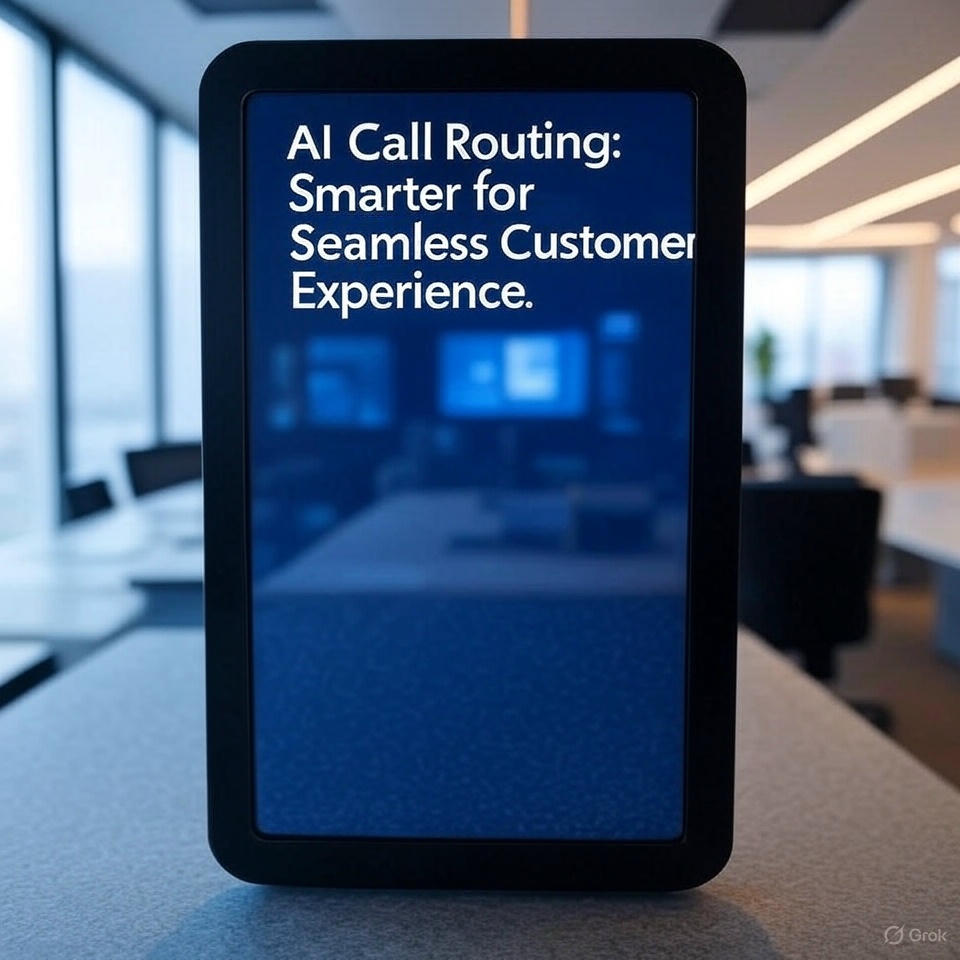AI Call Routing
AI Call Routing is revolutionizing the way businesses manage inbound and outbound calls by intelligently directing calls to the right departments or individuals using artificial intelligence. Unlike traditional call routing systems that follow a fixed script or rely on basic rules, AI-based systems learn from historical data, caller behavior, and contextual cues to route calls in real-time, improving customer satisfaction and operational efficiency.
As customer expectations rise, companies are under pressure to respond faster and resolve queries more accurately. AI Call Routing uses Natural Language Processing (NLP), Machine Learning (ML), and predictive analytics to understand customer intent, anticipate needs, and make intelligent routing decisions. This leads to a significant reduction in wait times, fewer transfers, and a better overall customer experience.
One of the major advantages of AI Call Routing is its ability to analyze unstructured data from previous interactions such as emails, chat logs, or past calls. This helps the AI system make informed decisions about which agent or department is best equipped to handle the current query. The AI continuously learns and adapts, ensuring that routing logic evolves alongside changing business needs and customer behavior.
Traditional Interactive Voice Response (IVR) systems often frustrate customers with long menus and robotic responses. In contrast, AI-powered solutions provide a more natural and intuitive experience. Voice assistants, for instance, can interact with callers in a conversational manner, extracting key information and routing calls without needing human intervention. This not only boosts efficiency but also enhances brand perception.
AI Call Routing also plays a crucial role in workforce optimization. By assessing agent skill levels, current workloads, and availability, the AI ensures that calls are directed to the best available agent. This smart distribution of calls reduces burnout, increases employee satisfaction, and maximizes productivity. Moreover, AI systems can dynamically reassign calls based on real-time performance metrics and service-level agreements (SLAs).
Another powerful feature of AI Call Routing is its integration with Customer Relationship Management (CRM) systems and other enterprise tools. This allows the AI to access detailed customer profiles, purchase history, and previous support interactions, enabling personalized routing and faster resolutions. For example, a high-value customer with an unresolved complaint might be prioritized and directed to a senior representative without any manual input.
AI Call Routing can also support multilingual capabilities, making it invaluable for global businesses. By detecting the caller’s language through speech recognition or account data, the AI system can route the call to a language-specific agent. This ensures clear communication and minimizes the risk of misinterpretation, further improving customer satisfaction.
Scalability is another significant benefit of AI-based routing systems. Whether handling a few dozen calls or thousands per day, AI solutions can scale effortlessly to meet demand. This is particularly useful during peak seasons or unexpected surges in call volume, where traditional systems may falter or require expensive human resources to manage the load.
Security and compliance are also enhanced with AI Call Routing. Sensitive calls can be automatically routed to trained personnel or departments with the necessary clearance, ensuring regulatory compliance and data protection. Additionally, AI can monitor calls for compliance violations in real-time and trigger alerts when necessary, minimizing legal and reputational risks.
Businesses using AI Call Routing also gain access to advanced analytics and reporting. These insights provide valuable information about call patterns, agent performance, customer sentiment, and more. Managers can use this data to fine-tune operations, improve training programs, and identify areas of improvement across the customer service function.
From a financial standpoint, AI Call Routing delivers a strong return on investment (ROI). It reduces the need for large call center staff, minimizes call handling times, and decreases operational costs through automation. Over time, these efficiencies translate into substantial savings and improved profitability.
Implementation of AI Call Routing doesn’t require overhauling existing systems. Many solutions can integrate seamlessly with legacy infrastructure, cloud-based PBX systems, or contact center platforms. This makes it accessible for businesses of all sizes, from startups to large enterprises.
In sectors such as healthcare, banking, retail, and telecommunications, where customer service plays a critical role, AI Call Routing is becoming a game-changer. It ensures patients are routed to the right specialists, customers are directed to fraud departments swiftly, and retail shoppers can quickly resolve product or delivery issues without bouncing between departments.
Furthermore, AI Call Routing enhances customer loyalty. When customers receive timely and relevant support, they’re more likely to trust the brand and continue doing business. Happy customers are also more likely to recommend the service to others, expanding the customer base organically through word-of-mouth.
Another important aspect is the ability to handle omnichannel communication. Modern AI routing systems don’t limit themselves to voice. They can also manage chat, email, social media messages, and web queries, ensuring that every customer interaction — regardless of channel — is handled efficiently and contextually.
AI Call Routing is also instrumental in disaster recovery and business continuity planning. In the event of a disruption, AI can reroute calls to alternate locations or remote agents, ensuring uninterrupted service. This agility is crucial in maintaining trust and continuity during unforeseen circumstances.
Employee training and onboarding are also streamlined with AI systems in place. New agents receive calls that match their skill level, with AI gradually introducing more complex cases as confidence and competence grow.
